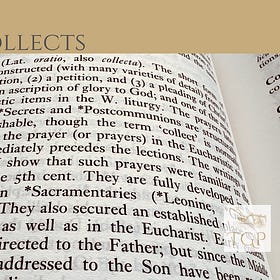The Humble Work of Being Human
The spiritual life depends on recognizing our limits
In the beginning of the season of Lent, those of us in traditional liturgical traditions may attend services on Ash Wednesday, and have ashes imposed on our foreheads with the words “you are dust, and to dust you shall return.”
I’ve always been struck by the similarity of this to the reported practice that marked the parade, called a “triumph,” that the Romans would throw for a victorious general. You may have heard the story—the triumphant figure enjoys the festivities, but has a single slave close by, tasked with holding a laurel crown over the head of the general, and uttering the words “Memento Mori” or similar: “remember death” or, slightly more loosely, “remember you are dying.” The remembrance of death was thought to be integral to the maintenance of humility and a sense of proportion in the context of the spectacle of the parade.
But we’re ordinary people, why do we need to be reminded of the reality of death? I think it’s because we need a sense of proportion too—and more than that, we need to hold on to the virtue of humility.
Humility isn’t a very popular virtue in our day. Celebrity has been a goal for decades, but now it is embodied in the self-branding that is required to create a job out of something like being an influencer. The Bible, on the other hand, is very clear about the dangers of coming to believe our own press.
I get it. There are those of us who need to learn what it means to actually love ourselves. How can we follow the great commandment to love our neighbors as ourselves, if we haven’t figured out how to maintain a realistic positive self-regard? I would like to suggest that Ash Wednesday has an answer for this problem as well as for the affliction of arrogance. And the reality is, the need for positive self-regard isn’t erased by the presence of arrogance. People are complex, and it’s perfectly possible for self-loathing and self-aggrandizement to exist side by side and to intermingle. In fact, I’m not sure there’s any other way for them to exist.
So what do we do about the sin of pride, which tradition identifies as the root of all the other deadly sins? The Saint Augustine’s Prayer book, published by Forward Movement for the Order of the Holy Cross, has this helpful section that outlines things like the four cardinal virtues, the three theological virtues, and the seven deadly sins. But of particular interest, it does something I think is really helpful: when it lists the seven deadly sins, it lists the opposing virtue which is its antidote. For pride, the antidote is humility.
Think about the word humility for a moment. Doesn’t it sound a lot like human? There’s a reason for that. Etymologists theorize that human, derived from the Latin humanus, is a relative of both homo (humankind) and humus (ground or dirt, earth), so to be human is to be intimately connected to the earth. Remember you are dust, and to dust you shall return.
But we’re not just dirt. The earth from which we came, to to which we will return represents our finitude, and our mortality, but that is not the whole of who we are. We are alive, we believe, because the breath of God fills our lungs. We are earth creatures who bear the image of our creator, and who live because we’ve been given the gift of life. As the Psalmist says:
What is man that you should be mindful of him?*
the son of man that you should seek him out?
You have made him but little lower than the angels;*
you adorn him with glory and honor; (Psalm 8:5-6)These verses are a good illustration of the multivalent meanings of scripture, as they refer to humanity in general, and our place in creation, and, as the author of the book of Hebrew’s tells us, to the person of Jesus.
The point to hold on to here, so well embodied in the liturgy of Ash Wednesday where we receive the Ashes to be reminded of mortality, and then receive the eucharist to be reminded of the life of Christ in which we share, which assures us of our hope beyond this life, is this:
If we are prideful and arrogant, if we mistreat or abuse others. If we look always and only for our own advantage—we will be humbled. However we deceive ourselves into trusting in our own power, and then use it to wrong others, we will ultimately be humbled by our nature, by our limits, and by God. As the Psalm for yesterday’s morning prayer put it:
I have seen the wicked in their arrogance, *
flourishing like a tree in full leaf.
I went by, and behold, they were not there; *
I searched for them, but they could not be found (Psalm 37:37-38).But for those of us who humble ourselves, who strive to love our neighbor as ourselves, and even to love our enemies, there is a different promise:
Mark those who are honest;
observe the upright; *
for there is a future for the peaceable (Psalm 37:39).When we embrace our limitations, our very human finitude and frailty. When we accept our need for God, and embrace a positive self-regard, and offer a similar positive regard to others (that is, when we see ourselves as both limited, beset by sin, but also unconditionally loved by God, and apply the same reality to others), then we can experience the startling reality that loving our neighbors and our enemies (the two are often the same, but that’s a point for another post) can actually become the opportunity to transform hearts.
One more Psalm citation illustrates this. It’s from Psalm 51, the Psalm that is traditionally recited at the Ash Wednesday service in the Episcopal Church. This verse stood out to me this year in a way it never has before, and it struck me as particularly hopeful:
I shall teach your ways to the wicked,* and sinners shall return to you (Psalm 51:14).
If we all strive for greater humility, a realistic perspective on ourselves filtered through the love of God, and share that with others, maybe we can teach God’s ways to each other, and we will experience the fruit of sinners returning to God. Amen.
Look for another reflection next Friday.
JBH+
Weekly Digest
Poetry & Prayers
You Come Again, Always
You come again, always In all things reflecting your glory You come again, always Created bearing the mark of creator Created marks carrying news of your passing and return In water In bread In wine In oil You come again, always In open door In table set A place of repose Rest. And Rest. In washing, and eating, and drinking Anointed by life You bid …
Convention Prayers
Among the many tasks I enjoy about my job as Canon to the Ordinary here in the Diocese of Tennessee, is the preparation for the closing worship for our Convention. This is a brief service, usually no more than one page. The Constitution and Canons of the Diocese of Tennessee require that our Convention open with Eucharist, and that a Eucharist be celebr…







